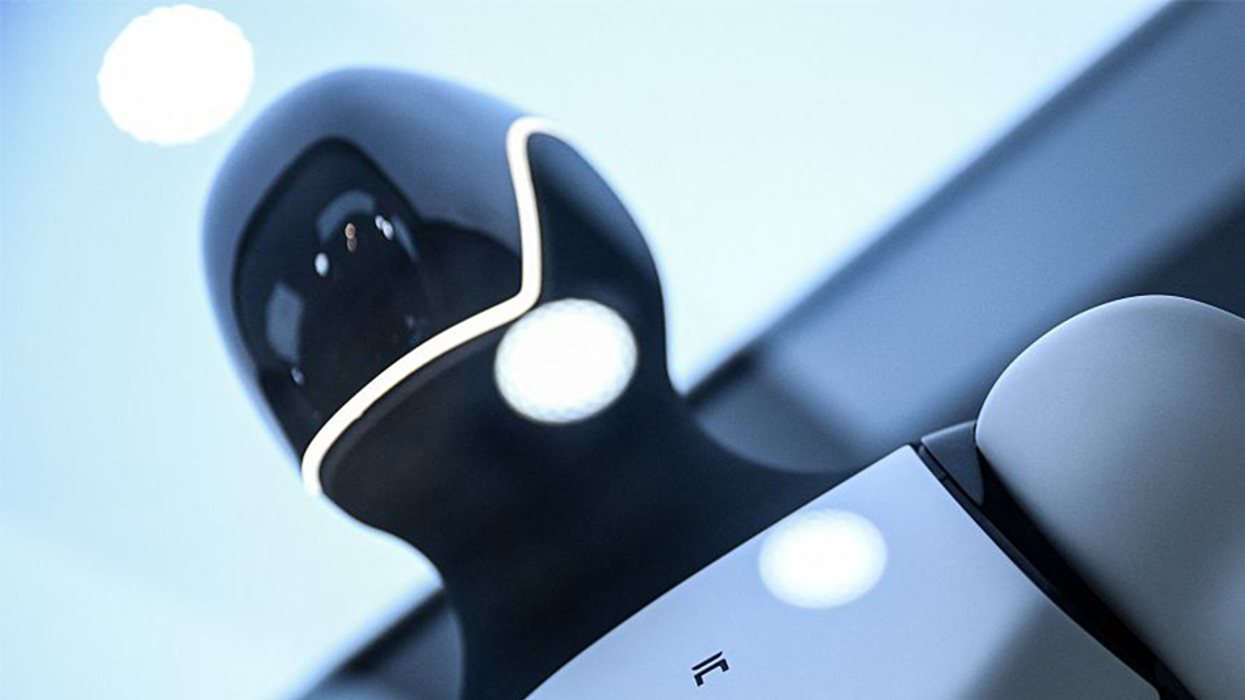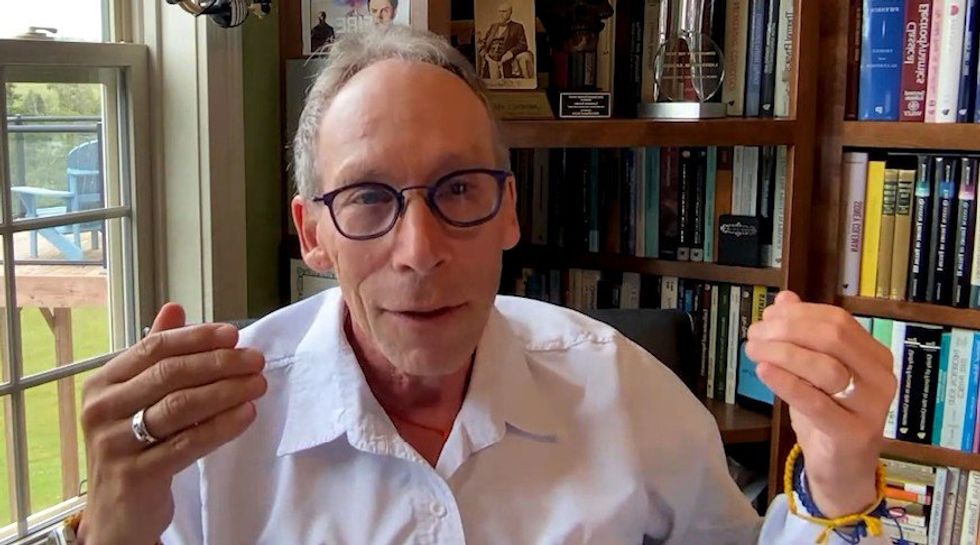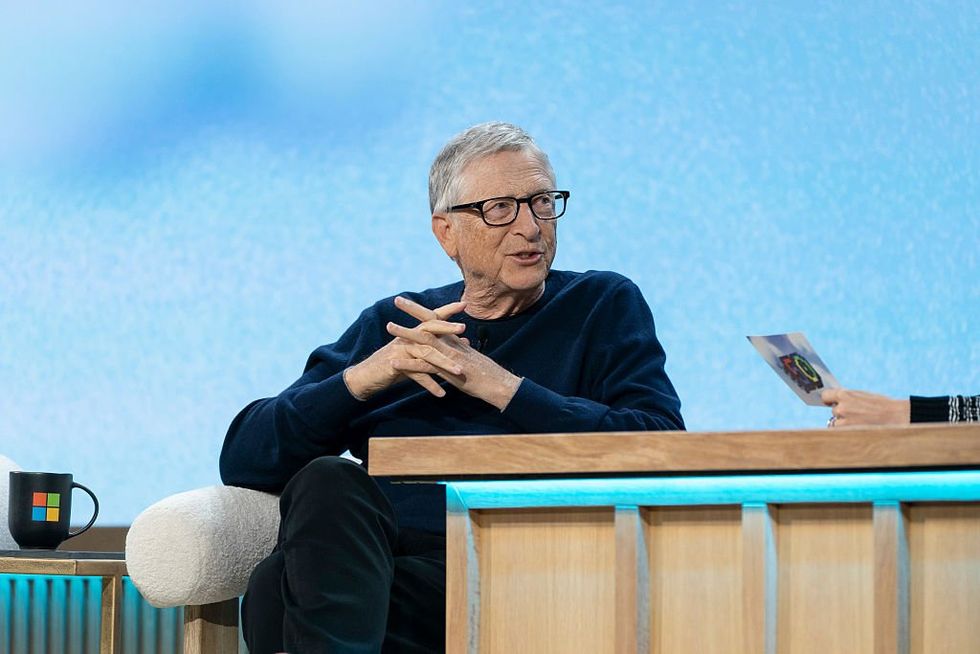
Photo by HECTOR RETAMAL/AFP via Getty Images

'Facts aren't as important as the ability to think critically.'
Theoretical physicist and cosmologist Lawrence Krauss says artificial intelligence is great at producing hype, but he isn't completely sold on its alleged potential.
Krauss is a renowned scientist who has taught at Arizona State University, at Yale University, and on other faculties, and recently lamented how diversity, equity, and inclusion has stifled scientific progression and, more generally, scientific excellence.
In an interview with Blaze News, Krauss commented on the perception that AI will spawn a global reckoning and what he sees as the true concerns about the emerging technology.
'You're gonna displace a lot of people's jobs, and that wealth is gonna go into one place.'
Getting to the truth means "one has to cut through the hype," Krauss said about AI. "Every new development has risks and benefits. And we have to think carefully about what those are."
The scientist continued, "I'm not as concerned as some people are, but partly because I think that AI is neither artificial nor intelligent at this point, and I think we're a long way from artificial general intelligence."
While most AI chat bots "beautifully regurgitate" information found online, Krauss described, they still are not representative of a sentient intelligence. Still, Krauss said he has real concerns about AI, but they are more in regard to the average worker than they are about AI taking over the world.

While AI may not be on the cusp of world domination, Krauss said that what he does worry about is wealth becoming concentrated in such a way that a select few companies can dominate their sectors by utilizing AI "light-years ahead" of their competition.
"You're gonna displace a lot of people's jobs, and that wealth is gonna go into one place," he explained.
The physicist claimed that in a perfect world, AI would do menial tasks and free up humanity's time to expand their horizons and increase productivity and wealth where it matters.
"If it was somehow spread so people benefited from that development, it'd be fine," Krauss stated. "But I suspect what's gonna happen is — and we already see it happening — is that mega-wealthy individuals and companies will develop ... AIs that allow them to access a huge amount of resources and wealth."
Not recognizing this could displace many workers and cause "huge dislocations of society," Krauss added. "That could be a problem."
RELATED: AI faces death by a thousand state regulations

Krauss stressed that literacy in emerging technology is about as important as teaching critical thinking skills. Drawing from his battles with DEI in academic settings, Krauss said it was paramount to "teach people how to search critically and question what they see" while looking broadly at a myriad of sources.
"You know, it used to be we teach some facts in schools, but facts aren't as important as the ability to think critically and be able to tell the wheat from the chaff."
Concluding that there's a lot of good and a lot of bad whenever a new technology captivates society, if you can't tell the difference between truth and fiction, "you're in trouble," Krauss said.
Krauss' latest book, "The War on Science: Thirty-Nine Renowned Scientists and Scholars Speak Out About Current Threats to Free Speech, Open Inquiry, and the Scientific Process," is now available.
Like Blaze News? Bypass the censors, sign up for our newsletters, and get stories like this direct to your inbox. Sign up here!
Andrew Chapados